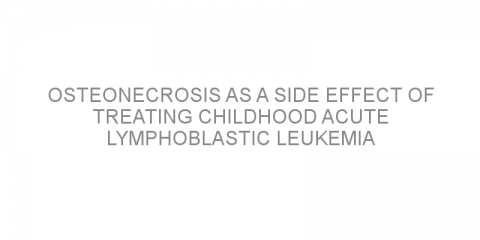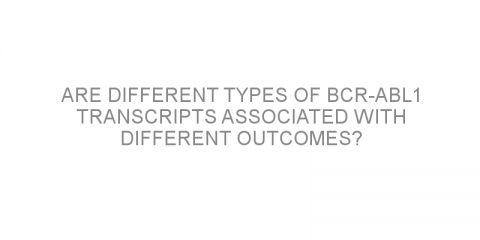In a nutshell This study investigated the individual risk of ischemic heart disease and stroke through age 50 in 5-year survivors of childhood cancer. The authors concluded that these conditions can be reasonably predicted using information available after childhood cancer therapy. Some background For the 400,000 childhood cancer survivors in the...
Read MoreLeukemia Posts on Medivizor
Predicting ischemic heart disease and stroke in survivors of childhood cancer
In a nutshell This study investigated the individual risk of ischemic heart disease and stroke through age 50 in 5-year survivors of childhood cancer. The authors concluded that these conditions can be reasonably predicted using information available after childhood cancer therapy. Some background For the 400,000 childhood cancer survivors in the...
Read MoreRight To Try: Needed Legislation or Snake Oil?
Thirty-eight states in the US have passed “Right To Try” laws. These are laws that are created to give terminally ill patients who have run out of options access to experimental drugs that have not completed the FDA approval process. There is an effort underway to pass this type of legislation on a federal level. On February 8, the #LCSM (Lung...
Read MoreStem cell transplants in older patients with acute lymphoblastic leukemia
In a nutshell This study aimed to investigate the outcome for patients aged over 60 who underwent reduced intensity allogeneic stem cell transplant. This study concluded that a subset of these patients will have extended survival and disease-free state following treatment. Some background Hematopoietic stem cell transplantation (HSCT) is increasingly...
Read MoreThe prevalence of metabolic syndrome in survivors of childhood acute leukemia
In a nutshell This study aimed to investigate the prevalence of metabolic syndrome in adult survivors of childhood acute leukemia. This study also aimed to determine the effect of different therapies on the occurrence of metabolic syndrome in these patients. This study concluded that metabolic syndrome is frequent among childhood AL survivors, regardless...
Read MoreStopping TKI therapy: An overview of evidence
In a nutshell This study reviewed evidence on the safety and effectiveness of stopping TKI therapy in patients with chronic myeloid leukemia (CML). Authors concluded that discontinuing TKI therapy is safe and effective in many patients with deep molecular response. Some background Tyrosine kinase inhibitors (TKIs) is a first-line treatment for...
Read MoreIbrutinib in combination with bendamustine and rituximab improves quality of life factors in patients with severe impairment
In a nutshell This study examined how treatment with ibrutinib (Imbruvica), rituximab (Rituxan), and bendamustine (Treanda) impacts quality of life in chronic lymphocytic leukemia (CLL) patients. Factors such as fatigue, physical functioning, and well-being were all improved among those patients with the lowest scores before treatment. Some background...
Read MoreNeurotoxicity in children who receive treatment for acute lymphoblastic leukemia
In a nutshell This study aimed to investigate neurotoxicity (side effects involving the brain or nervous system) as a side effect in children who were treated for acute lymphoblastic leukemia. This study concluded that neurotoxicity is a rare side effect that mainly occurs in the induction phase of treatment for this group of patients. Some...
Read MoreOsteonecrosis as a side effect of treating childhood acute lymphoblastic leukemia
In a nutshell This study aimed to investigate the incidence and risk factors for osteonecrosis in pediatric patients with acute lymphoblastic leukemia in Asia. This study concluded that the incidence of osteonecrosis is low and the only risk factor is aged 10 years or older in these patients. Some background Osteonecrosis (ON) occurs when there...
Read MoreNilotinib versus dasatinib: Comparing side effects
In a nutshell This study compared side effects between two similar therapies – nilotinib (Tasigna) and dasatinib (Sprycel) – for chronic myeloid leukemia (CML). Researchers reported more serious side effects with dasatinib than with nilotinib. Some background Tyrosine kinase inhibitor (TKI) therapy is a standard first-line treatment...
Read MoreAre different types of BCR-ABL1 transcripts associated with different outcomes?
In a nutshell This study examined outcomes in chronic myeloid leukemia (CML) patients with different types of a genetic abnormality known as BCR-ABL1. While patients with the BCR-ABL transcript e14a2 showed better response to treatment, long-term outcomes were similar between groups. Some background Certain genetic changes in CML can make it more...
Read MoreAntithymocyte globulin before transplantation for patients with acute myeloid leukemia
In a nutshell This study aimed to analyze the impact of antithymocyte globulin doses in patients with acute myeloid leukemia in first complete remission undergoing transplantation. This study concluded that an antithymocyte globulin dose less than 6mg/kg is enough to prevent graft versus host disease. Doses higher than this impair disease control and...
Read More














